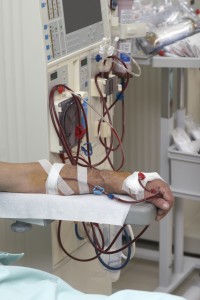Dialysis: Gauging its need, and how to reduce its stress
Here’s my latest article on McKnight’s Long-Term Care News:
Dialysis: Gauging its need, and how to reduce its stress
As a psychologist observing the effects of medical interventions on the mental health of the long-term care resident, I often ask, “Is this aggressive procedure helping?”
Such a well-intended question can prompt the team to reconsider the course of treatment or to affirm that care is in line with the wishes of the resident and their family.
Conversely, I do what I can to encourage my residents to comply with medical recommendations. When a resident presents with end-stage renal disease (ESRD) and the inevitable recommendation of hemodialysis is given, I work with them to adjust to this turn of events.
That’s why I was surprised to read in Paula Span’s “New Old Age” article in the New York Times last week, “Learning to Say No to Dialysis,” that dialysis isn’t always the best course of treatment for older patients.
Span reports that while dialysis can be very successful for younger and healthier patients, about 40% of patients with ESRD over the age of 75 die within a year and only 19% survive over four years. One study found that 58% of nursing home residents died within a year. Meanwhile, 61% of patients in a Canadian study said they regretted starting dialysis.
What leads to regrets tend to be the following factors, which can contribute to feelings of depression among those on a renal program:
• Physical symptoms such as pain, fatigue, nausea and headaches
• The amount of time spent on dialysis
• Inability to travel
• Dietary restrictions
Span quotes nephrologist Dr. Alvin H. Moss, who notes, “Patients are told, ‘You have to go on dialysis or you’ll die,’ rather than, ‘You could have up to two years without the treatment, without the discomfort, with greater independence.’” I’ve been part of teams that have told residents the exact words of that first message.
Medical management
For older patients, particularly those with other health problems, Dr. Moss asserts that medical management might be a way for them to focus on extending their quality of life and avoiding the discomforts of dialysis. The American Society of Nephrology suggests discussing this alternative to dialysis with patients through a shared decision-making process, as noted in their Choosing Wisely guidelines.
Facilitating treatment discussions
For the entire article, visit:
Dialysis: Gauging its need, and how to reduce its stress


